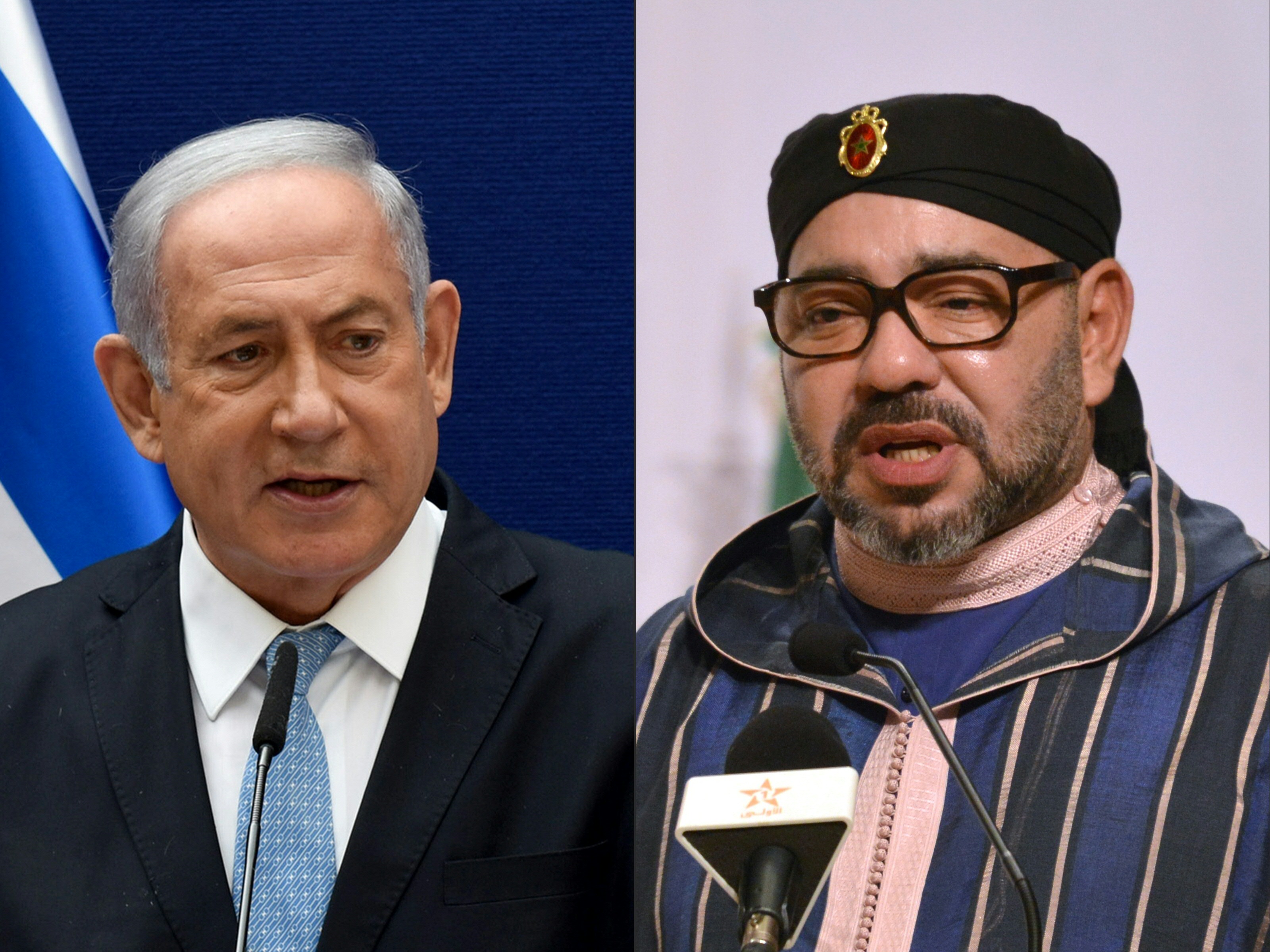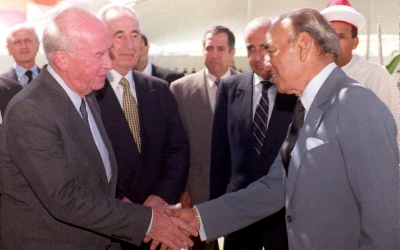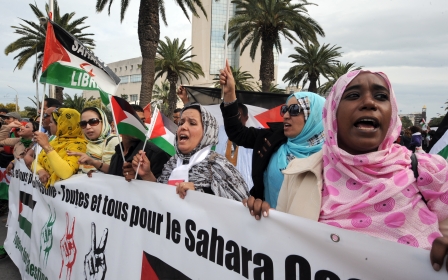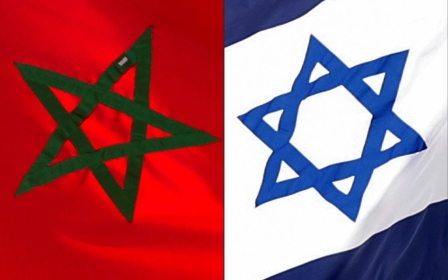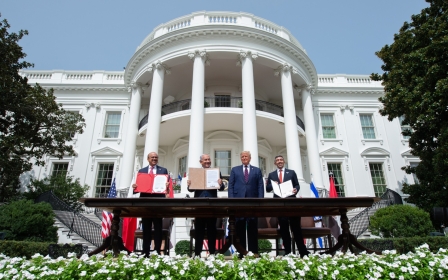Morocco's Islamist backing for Israel normalisation is a game changer
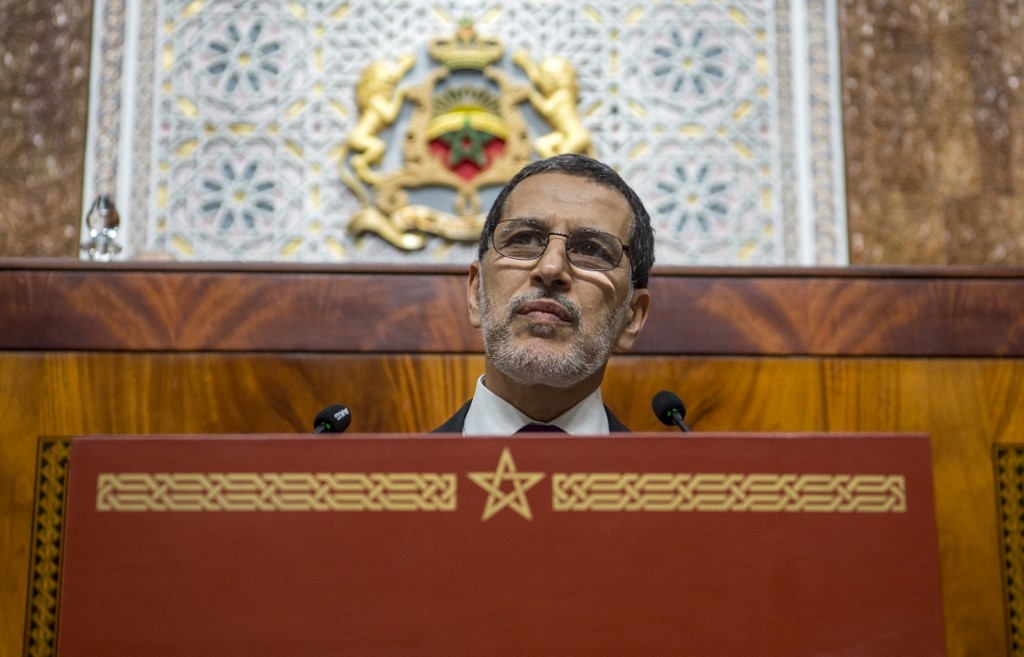
Morocco’s normalisation of relations with Israel last month sent shockwaves through the Arab world, in particular among Islamists.
This stemmed not only from the fact that it occurred before a settlement was reached on establishing an independent Palestinian state, but also because the ruling party in Morocco, which signed the normalisation deal, is Islamist: the Justice and Development Party (PJD) led by Prime Minister Saad Eddine el-Othmani.
The Palestinian cause has historically been a top priority for political Islamist movements from the Mashriq to the Maghreb, which consider it a religious, ideological and political issue that should not be abandoned.
Through its actions, the PJD showed that the interests of the country trump any foreign interests and issues, even the Palestinian cause
For decades, Islamists have used the Palestinian cause to achieve several goals, including mobilising the Arab street to stand with them politically and ideologically. They have pressed Arab governments to support Palestinians, shamed leaders in front of their populations, and warned of the repercussions of normalisation with Israel.
Moroccan Islamists are no exception. Before he became the head of government, Othmani railed against the establishment of normal relations with Israel in the absence of Palestinian rights, writing an article entitled “Normalization Is a Civilizational Genocide” that was strongly critical of Egypt’s and Jordan’s normalisation of relations with Israel in 1979 and 1994, respectively.
New MEE newsletter: Jerusalem Dispatch
Sign up to get the latest insights and analysis on Israel-Palestine, alongside Turkey Unpacked and other MEE newsletters
Othmani’s signature on the normalisation deal with Israel is thus unprecedented, marking the first time that the head of an Islamic party has signed such an agreement - and calling into question the credibility of Islamists with regards to the Palestinian cause.
As a consequence, Arab Islamists have strongly criticised the PJD, accusing it of abandoning the Palestinian cause for political gain. But perhaps the important question to ask is: how can we explain Othmani’s behaviour? There are many potential reasons for the shift in his position.
Discourse of power
Firstly, there is his transition from being part of the opposition to being in power. Generally, the discourse of parties in opposition is always sharper than their discourse once they attain power. This applies equally to Islamists and secularists.
French sociologist Olivier Roy monitored this shift in one of his studies, highlighting that when Islamists engage in politics, they believe that they can change it - but instead, they change soon after entering it. We have seen such shifts in the discourse and behaviour of Islamists over the past few years in Egypt, Turkey, Kuwait, Yemen, Jordan and Algeria. Islamists tend to become more pragmatic and realistic, and to abandon their ideological slogans, after engaging in political action.
Despite this, they have never abandoned the Palestinian cause, let alone normalised relations with Israel.
Secondly, the relationship between Morocco’s Islamists and the royal palace is a highly dependent one. There is no real independence of the government from the king.
Despite 2011 constitutional amendments that gave more powers to the head of government, he remains subordinate - an executor of the king’s will. Like other authoritarian monarchies, the king in Morocco can dissolve the government and call for new elections if it is in the country’s interests.
Since the PJD came to power, it has not been able to challenge the will of the king. Royal institutions enjoy a degree of respect among Moroccan citizens, who consider them a safety valve for the country’s unity and part of its historical traditions, even if they disagree with the king’s policies.
Historic opportunity
A third factor is the disputed Western Sahara, over which outgoing US President Donald Trump recognised Morocco’s sovereignty in return for the normalisation deal with Israel. For Morocco, this was a historic opportunity that may not resurface, as only a few countries recognise its sovereignty over the Western Sahara. The United Nations is still trying to resolve the conflict there by organising a referendum for the Sahrawi population on self-rule.
Through its actions, the PJD showed that the interests of the country trump any foreign interests and issues, even the Palestinian cause. The government views US recognition of Morocco’s sovereignty over the Western Sahara as a great victory for Moroccan diplomacy.
The position of Islamists in Morocco regarding Israel may refute many of the cliches and stereotypes about Islamists. It shows that Arab Islamists are not monolithic or a single bloc, and that there are many differences among them, especially with respect to political views. Therefore, generalisations should be avoided while evaluating their positions on political issues, whether internally or externally. Indeed, there is no consensus among Islamists in Morocco on normalisation with Israel.
The Movement for Unification and Reform, the PJD’s religious and charitable arm, has condemned normalisation with Israel, issuing a statement to denounce Othmani’s signature on the deal.
At the same time, the conception that Islamists do not believe in the framework of a nation-state has fallen. In recent decades, Islamists have been accused of focusing on the interests of the Islamic nation, or caliphate, and not respecting the nation-state. This has proved to be incorrect, as shown by the position of Morocco’s Islamists.
Political calculations
It is clear that the position of the PJD is largely consistent with that of the Moroccan state. This is also evident in the position of Algeria’s Islamists, who have refused to recognise Morocco’s sovereignty over the Western Sahara. Algeria’s Islamist Movement of Society for Peace denounced the normalisation between Morocco and Israel as a threat to the region. This position is consistent with that of the Algerian state, which rejected Trump’s recognition of Moroccan sovereignty over the Western Sahara and called for resolving the issue in accordance with UN decisions.
There is no doubt that the PJD's normalisation with Israel will have consequences for the party's political future
Clearly, the positions of Islamists in Morocco and Algeria reflect their own political calculations, in line with the calculations of their national states. The conflict with Israel no longer occupies the same attention and space in the agenda of Islamists as it did decades ago. Domestic issues such as the economy, education, health and corruption have come to dominate their political agendas.
There is no doubt that the PJD’s normalisation with Israel will have consequences for the party’s political future. It may have to pay a heavy price, both in terms of electoral losses and the party’s popularity more broadly. Last week, the party suffered a surprise loss in the Errachidia district in southeastern Morocco, ranking third after the Socialist Union of Popular Forces and the National Rally of Independents.
It is clear that the involvement of Moroccan Islamists on the issue of normalisation with Israel will have major repercussions, raising questions - perhaps for the first time - about their credibility and commitment to the Palestinian cause.
The views expressed in this article belong to the author and do not necessarily reflect the editorial policy of Middle East Eye.
This article is available in French on Middle East Eye French edition.
Middle East Eye delivers independent and unrivalled coverage and analysis of the Middle East, North Africa and beyond. To learn more about republishing this content and the associated fees, please fill out this form. More about MEE can be found here.



